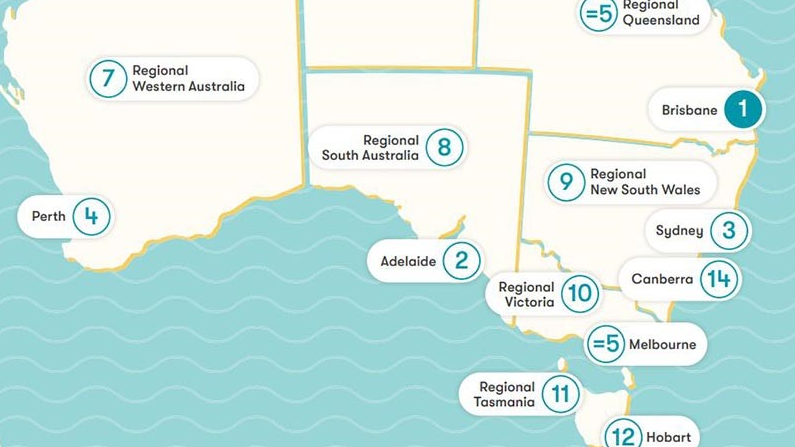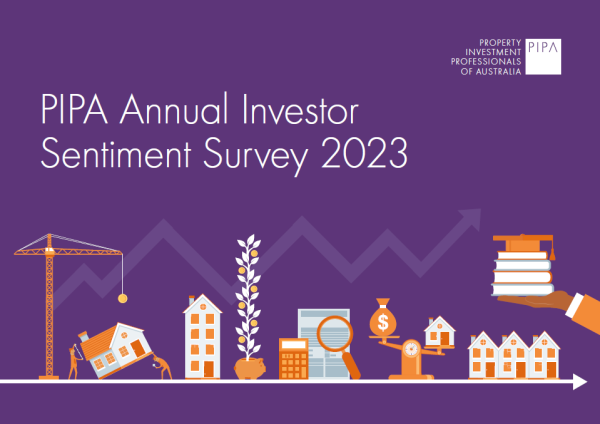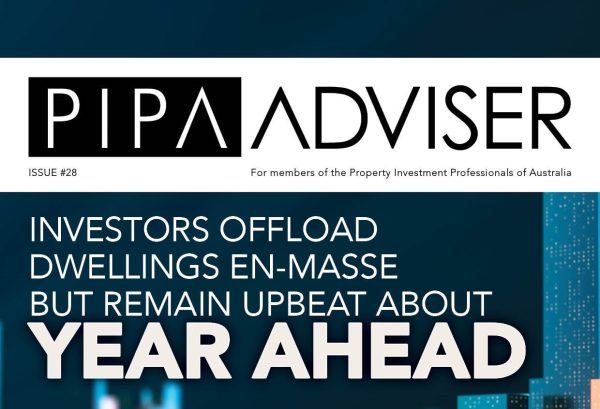How the collapse of Evergrande could impact Australia’s property market
Sep 2021Karen Millers
Categories
Location ReportsMedia releasesNational market updatesPersonal advisersPIPA AdviserPIPA Annual Investor Sentiment SurveysPIPA Member ProfilesPIPA video updatesPIPA webinarsPodcastsProperty advisersProperty newsLatest Articles
‘More chance of winning lotto’ than housing targets being met
PIPA Member Profile | Amanda Turner, Opulence Property
China is Australia’s biggest economic partner, and the ASX is already showing signs of distress: prices of iron ore, already in decline, have fallen yet further. There has been a 60% drop in the price of iron ore, which is one of our major exports to China.
The effect on the Australian property market from the collapse of Evergrande is linked two-fold: both in terms of the price of raw materials to our construction sector, already rattled by Covid, and also in the inner city real estate market which is so dependent on Chinese migrants, in particularly university students, for tenants.
With that in mind, Australian Broker spoke to several experts to discuss what the effect on real estate in Australia could be should Evergrande collapse – it is still unknown what measures the Chinese government might take to avert disaster – and what a crash in the price of property in China could mean to Australian property investors, mortgage brokers and their clients.
“Let me just give you a number: this company is so big that it has US$300 billion of liabilities,” said Professor James Laurenceson of the Australia-China Relations Institute at the University of Technology Sydney.
“To put that into perspective, the Australian economy as a whole has a GDP of around AUD$1.9 trillion. You’re talking about one company that has liabilities to the value of about 20% of the entire Australian economy as a whole. So it’s big.”
Could the Evergrande collapse impact Australia?
“That’s the number that people are reaching for, but I think it’s important to keep it in a Chinese context and not an Australian context. This is a company that has assets: while I think it is well on its way to bankruptcy, so I’m not saying that there isn’t a problem here as liabilities are outweighing assets, it’s net worth isn’t $300 billion in the red.”
“China’s economy as a whole is worth US$15 trillion, so while $300 billion for us is a massive number – and it is in China too – it’s not of the same magnitude. There’s some people talking of this being China’s Lehmann Brothers moment that could send the economy into a tailspin, but I think that’s a bit of a stretch based on the data that we have at the moment.”
The collapse of Evergrande, as with any company of such a massive size, is felt on the markets. With Australia’s ASX so critically linked to China, there has been a 60% crash in the price of iron ore. Furthermore, $58 billion’s worth of Evergrande’s debt is to retail investors, average Chinese people who may see their savings dissipate if those debts go unpaid.
“The most obvious kick on is the iron ore link,” said Laurenceson. “We’re talking about a big construction company here, so if this unfolding crisis at Evergrande spilled over to the property sector and construction more generally, then that absolutely would have a knock on effect for Australian iron ore and its price.”
“We’ve spent the last month watching iron ore prices plummet, but I’m not sure that’s got too much to do with Evergrande: it’s more generally to do with factors around the slowing growth of Chinese steel production. I wouldn’t be drawing a direct link between Evergrande and the price of Australian iron ore halving over the last few months, but it is obviously a source of vulnerability.”
What effect would the Evergrande collapse have on the Australian property market?
“The other thing is that, in China, households hold a lot of their wealth in property assets. Now, if it did spiral out of control and you had sharp falls in house prices in China, for example, then that’s going to have a big impact of Chinese household’s balance sheets.”
“That would have a spill over to Australia as well. We might have less Chinese investment in Australian real estate, we might have fewer Chinese students and tourists. Those aren’t live issues at the moment because of border closures, but once they open up, there’s that potential for that to occur.”
Chinese students form a central pillar of the inner city real estate market in Sydney and Melbourne, which currently is the weak link in the Australian property boom. While everywhere else is experiencing unprecedented growth, inner city units are seen as a risk due to uncertainty around when and if students will return, and the changing demands on the CBD as a knock on from hybrid working.
“Here’s some good news: it’s quite staggering how well commencing Chinese international students at Australian universities are holding up,” explained Laurenceson. “I’m talking about enrolment, as they can’t actually come, but in terms of enrolling and beginning study online, those numbers are holding up remarkably well, particularly as they don’t know when the border might open up again. This is in contrast to Indian students, our second largest market, which has absolutely collapsed.”
“The strength for our inner city real estate is that Chinese households do put a lot of emphasis on education, so it’s a pretty resilient market. But, if household balance sheets were to take a big hit because property prices in China fell, that absolutely would have knock on effects.”
“We’re a couple of steps ahead and we’re sketching out possible futures, rather than what I would regard as the most likely future.”
Inner city unit property markets in Australia could be affected by Evergrande collapse
The effect of the collapse of Evergrande on property in Australia might actually have a positive effect, as the fall in the price of iron ore may make construction here more affordable, while the role of Chinese investors has fallen greatly from its height in the mid-2010s.
“The amount of money from Chinese investors in the Australian property market has considerably declined over the last five years, as governments have levied additional taxes,” said Tom Forrest, CEO of Urban Taskforce, a peak body for property developers.
“In New South Wales they doubled the tax duty on foreign investors, and there was also a land tax penalty on foreign buyers, which led to a lot of the Chinese money pulling out of the market. So there’s no immediate effect, especially as Evergrande haven’t been a big player in recent times in terms of funding or developing.
“In terms of a broader impact in the price of materials, you could argue the case that the plummeting of demand for structural steel in China, the prices will go down. The cost of coal and the cost of iron ore will go down (used to make the steel), resulting in a reduction in the price of commodities. That’s simple supply and demand.”
“Most of the construction componentry for Australian construction sites is made in Australia. Structural steel, glass, and electronics are not, and at the boutique level, you get supply of kitchens and things like that that is impacted by Covid and delayed. There’s no doubt about that.
“But by and large, I don’t see a major impact on construction in Australia from the collapse of Evergrande.”
Australian property market likely shielded from Evergrande collapse
Forrest confidently predicted that, despite Evergrande’s collapse, the demand from China for students to come to Australia would not go away.
“The weakness in the inner city at the moment is a short-term Covid impact,” he said. “Our net migration as a result of the exodus of those students has been negative: rather than plus 160,000 people a year, we’re negative 94,000. That makes a huge difference.”
“Most of that negative has been apartments, as most of the people who have come into Australia have been expats returning. They’ve gone for house and land packages. They’ve tended to be well-off, as they’re not a student population and are often professionals. That’s pushed up the price of existing homes in the outer suburban areas.”
“When migration returns – and the Federal Government are predicting a return of 160,000 net migrants per annum, but a return beyond that to 225,000 – I can see a return of demand to apartment living in the inner city. Prices have risen 8% in apartment prices this year so far. Obviously, not as much as the 20% in housing, but it’s still a significant increase.”
“You’ve had no demand from overseas students or professionals, and still they rose 8%. That says to me that when migrants do return, and they will, there’s going to be a reasonably rapid rise to health in that marketplace.”
Evergrande collapse could be like Lehmann Brothers
On a macro level, there are fears that the collapse of Evergrande could see a run on the Chinese economy, were it not saved by the Chinese government.
Peter Koulizos, the CEO of the Property Investments Professionals of Australia (PIPA), said that it was possible that intervention could stop a 2008 style crash.
“The Chinese could do what the rest of the world did with Covid-19, and pull money from thin air,” he said. “They might provide investors with some sort of safety net, like we had with Covid. If they think the Evergrande collapse is massive enough, they’ll have to put in some initiatives to stop the flow on effect.”
“If the worst comes to the worst and they don’t, that’s going to affect the Chinese economy and the global economy in a similar way that the American mortgage crisis affected the globe. Because it’s not just American investors and homeowners and brokers that are involved in the American mortgage market. That’s the same with China.”
Mike Wood, Brokernews.com.au, 23 September 2021
https://www.brokernews.com.au/news/breaking-news/how-the-collapse-of-evergrande-could-impact-the-australias-property-market-278759.aspx




